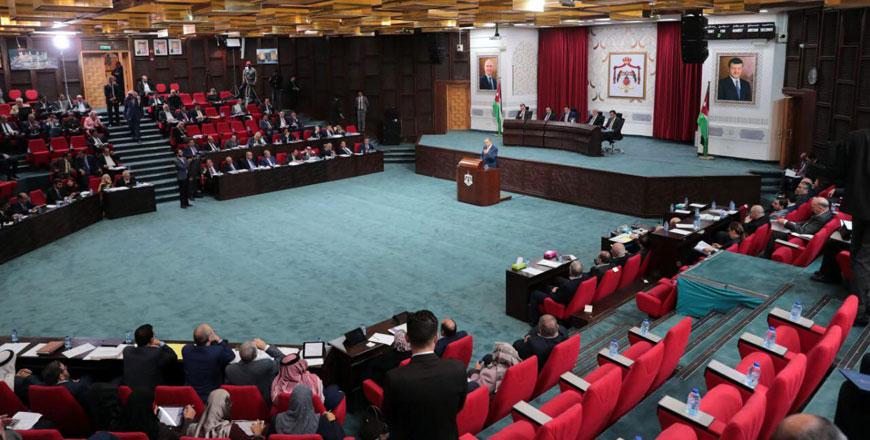You are here
Latest amendments to Income Tax Law ‘cosmetic’ — economists
By Mohammad Ghazal - Sep 25,2018 - Last updated at Sep 25,2018
AMMAN — The 2018 amendments to the Income Tax Law after a nationwide dialogue with various segments of the society were “cosmetic”, economists said on Tuesday.
Interviewed by The Jordan Times, economists said that the draft law is currently at the Lower House, which is expected to press for some more changes in the draft law economists said on Tuesday.
The Cabinet on Monday approved the final version of a draft law amending the Income Tax Law before sending it to the Lower House for endorsement. A Royal Decree was issued on the same day, adding the bill and three other ones to the list to be debated by the House in the second extraordinary session this summer, due to start on Wednesday.
“The amendments introduced by the government in the final version of the bill are superficial, especially since the government took a long time discussing it with various stakeholdersl,” economist Khaled Zubeidi told The Jordan Times on Tuesday.
The most important amendments to the draft law included raising the threshold of taxable income for households by JD1,000 that should be covered by bills for health, education, loan interests, murabaha (an Islamic finance and investment instrument) and residential rent in 2020. Subsequently, the tax exemptions for families in this year will amount to JD18, 000 instead of JD17, 000, according to the draft law text announced by the Prime Ministry.
“The JD1,000 for example is not enough to cover expenses to buy stationary, textbooks for schoolchildren and some medications for the whole year. Families pay thousands of dinars to educate their kids in private schools and treat them in private hospitals for better medical treatment,” Zubeidi added.
“The draft bill is now in the hands of the lawmakers…the only good thing was increasing the income tax on banks, although it should have been higher as almost 20 years ago the income tax on banks was around 55 per cent,” said Zubeidi.
In the latest draft, income tax on banks was raised from 35 per cent to 37 per cent and the threshold of taxable income for retirees was lowered from JD3,500 per month to JD2,500 per month.
Economist Wajdi Makhamreh said: “The final version was less than expected and it does not include major changes to the previous draft.”
“These are simply cosmetic amendments…It seems that the government is under pressure to send the law to the lawmakers for endorsement,” said Makhamreh, adding that the tax on banks should have been increased to 40-45 per cent.
The economists said the lawmakers are expected to place some pressure to introduce some amendments to the bill, which is part of fiscal reforms taken in line with an extended fund facility signed in 2016 between Jordan and the International Monetary Fund.
The bill, as per its validating reasons, seeks to generate JD280 million in additional revenues in 2019, of which JD180 million will be collected as a result of expanding the taxpayers’ base, while the rest will be generated as an outcome of “effective combating of tax evasion”.
Monday’s amendments also included exempting unions’ social solidarity funds from the income tax.
The principle of progressive tax was further stressed as the government added a new segment to those with a very high income, the statement said, explaining that those whose income exceeds JD1 million annually will be subject to a 30 per cent tax rate. Previously, the government set 25 per cent as income tax levied on those whose income is JD300,000 a year and above.
Meanwhile, the income tax on manufacturing industries in developmental zones will start as of next year at 1 per cent to rise to a maximum of 8 per cent, instead of 20 per cent in the older version.
For establishments based in free zones, they will be subject to 6 per cent instead of 20 per cent, according to the text of the draft law that will be debated by the House in the upcoming extraordinary session.
Related Articles
AMMAN — The recent income tax bill endorsed by the Lower House is expected to result in a decline in the volume of forecasted revenues, econ
AMMAN – The Cabinet on Monday approved the final version of a draft law amending the Income Tax Law before sending it to the Lower House for
AMMAN — The Lower House on Tuesday began its deliberations over the 2018 amendments to the Income Tax Law, turning down a request by some MP
















